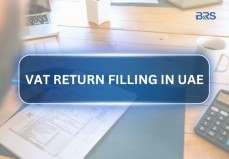Filter
Sort By

Tips to Reduce Business Taxes in the UAE
In this blog, we have outlined various tips and strategies that businesses can follow to reduce corporate tax and maximize profit. Let’s get into it!

Corporate Tax Pre-registration through EmaraTax
The Federal Tax Authority (FTA) of the UAE announced on Sunday that it has begun early registration for corporate tax through the EmaraTax platform to provide digital tax services.

Tax Audit in UAE
A tax audit is a procedure used by the Federal Tax Authority (FTA) to review the financial records or other information or data of taxable persons conducting business in the UAE.

VAT training in UAE
The significance of handling VAT operations and calculations is made clear to professionals through VAT training in the UAE.

Excise Tax Advisory Services UAE
Excise tax is a type of indirect tax imposed on particular commodities known as "excise goods," which are often detrimental to the environment or human health.

VAT Return Filing in UAE
VAT return filing is an official declaration submitted to the Federal Tax Authority, detailing the VAT paid on taxable goods and services within a specific period.

Tax consultants in UAE
Tax consultants assist firms and individuals in understanding and implementing a country's taxation system.

Who will be a taxable person under UAE Corporate Law
Corporation tax applies to all entities with taxable profits (net) of more than 375,000 AED. These entities are obligated to pay a portion of their net profits as corporate tax.

Tax Residency Certificate UAE
A firm operating in the UAE can obtain a Tax Residency Certificate (TRC), which establishes its tax residency and entitles it to benefits under double taxation avoidance agreements, from the FTA, UAE.

VAT deregistration in UAE
VAT registrations are vital for any corporate organization, but so is VAT deregistration. A business might need to revoke its VAT registration under certain specific circumstances.

VAT registration in UAE
The UAE implemented Value Added Tax (VAT) on January 1st, 2018. Each stage of the supply chain is subject to the transaction-based indirect tax referred to as VAT.

Group Relief & Restructuring Relief Under Corporate Tax
Due to the ability of one company's tax losses to lower another company's taxable income, companies are taxed on a consolidated basis under this tax group.

Exempt Income under Corporate Tax
Exempt income refers to the type of income that is not subject to income tax. There are several forms of income that are not subject to either state or federal income taxes.

taxable person under corporate tax UAE
Corporate tax is applicable to every taxable person/entity with profits (net) of more than 375,000 AED. These entities obligate to pay a portion of their net profits as corporate tax.

Exempt Person under Corporate Tax UAE
According to the UAE Corporate Tax Law, an exempt person is a person who may be subject to taxation but is exempt from paying it due to the application of particular legal requirements.

calculation of taxable income under corporate tax
On or after June 1, 2023, the UAE will implement a corporate tax on corporate earnings at a rate of 9%, as announced on January 31, 2022. Click here to know more

Key facts about EmaraTax in UAE
The Federal Tax Authority (FTA) has announced the launch of EmaraTax in the UAE, a new portal for businesses to register for taxes and submit their tax returns.

Income tax on profit distribution
Employment income and other personal income earned by UAE residents and foreign individuals will not be within the scope of the proposed UAE Corporate tax regime.


